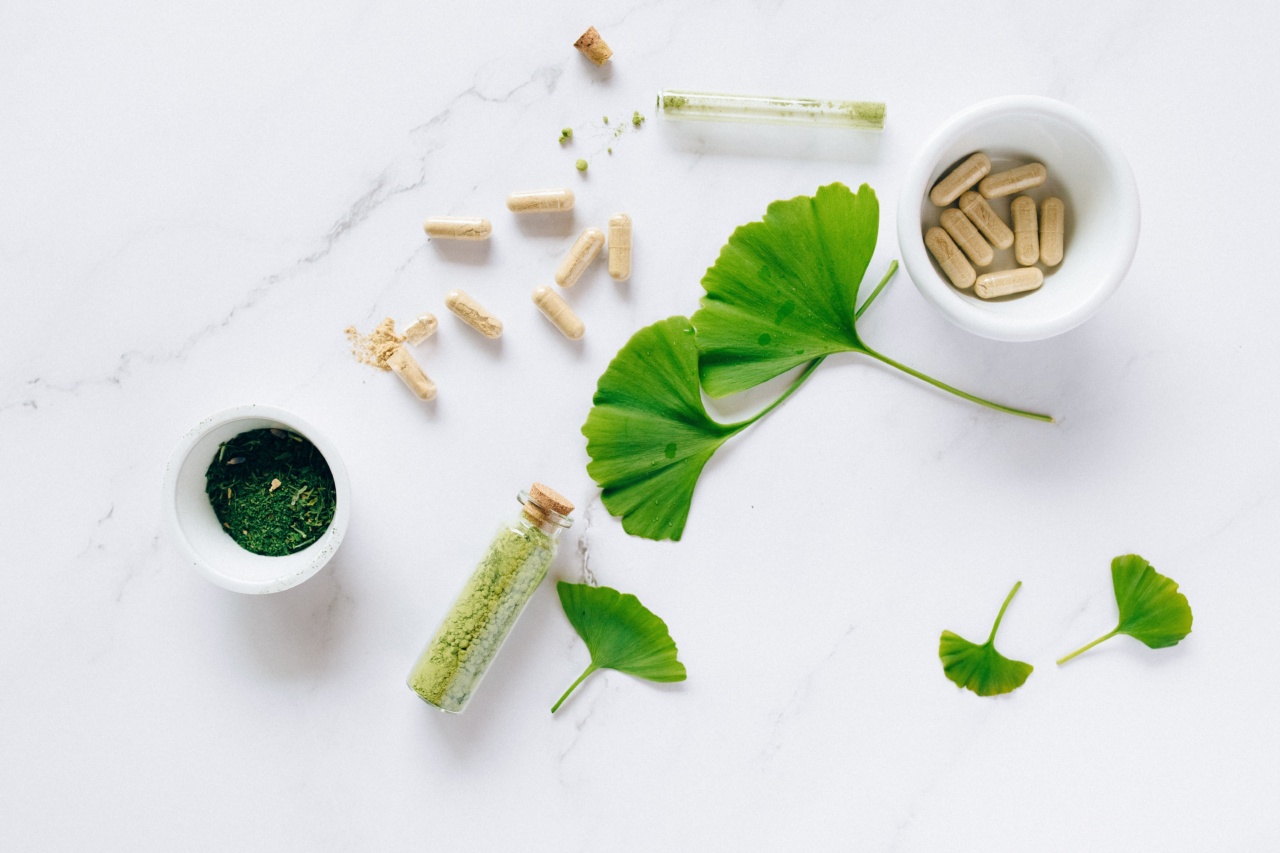Diabetes is a chronic health condition that affects millions of individuals worldwide. It occurs when the body has difficulty producing or using insulin, a hormone responsible for regulating blood sugar levels.
While traditional medical management for diabetes typically involves insulin injections and prescription medications, many people are also turning to natural supplements as a complementary approach to diabetes management. These natural supplements, when used alongside appropriate medical care, can help support overall blood sugar control and improve overall health outcomes for individuals with diabetes.
In this article, we will explore some of the most popular natural supplements for diabetes management. Please note that it is always important to consult with a healthcare professional before starting any new supplement regimen.
1. Cinnamon
Cinnamon is a delicious spice that has been used for centuries in traditional medicine. Several studies have shown that cinnamon may have beneficial effects on blood sugar levels, making it a popular natural supplement for individuals with diabetes.
Cinnamon contains compounds that can enhance insulin sensitivity, which can improve the body’s ability to regulate blood sugar. Incorporating cinnamon into your diet can be as simple as sprinkling it on oatmeal, adding it to coffee, or including it in baked goods.
2. Chromium
Chromium is an essential mineral that plays a key role in carbohydrate and lipid metabolism. It has been studied for its potential benefits in managing blood sugar levels in individuals with diabetes.
Chromium supplements can help enhance insulin action, promote glucose uptake into cells, and improve insulin sensitivity. Foods like broccoli, barley, oats, and green beans are good dietary sources of chromium. However, additional supplementation may be necessary to meet the optimal recommended daily intake.
3. Alpha-Lipoic Acid
Alpha-lipoic acid (ALA) is a powerful antioxidant naturally produced by the body. It is involved in energy metabolism and has been found to have potential benefits for individuals with diabetes.
ALA helps to lower blood sugar levels, improve insulin sensitivity, and reduce oxidative stress. It also plays a role in nerve health, which is particularly important for individuals with diabetes who may experience diabetic neuropathy. ALA can be found in certain foods such as broccoli, spinach, and tomatoes, but supplements are also available.
4. Gymnema Sylvestre
Gymnema Sylvestre is a herb native to India and has been used in Ayurvedic medicine for centuries. It is known as the “sugar destroyer” due to its ability to reduce sugar cravings and help maintain healthy blood sugar levels.
Gymnema Sylvestre works by blocking the taste of sweetness, which can be beneficial in reducing sugar intake. It also promotes insulin production and helps improve insulin sensitivity. Gymnema Sylvestre supplements are available in capsule or tea form.
5. Bitter Melon
Bitter melon, also known as bitter gourd or Momordica charantia, is a tropical fruit that is commonly consumed in Asian cuisine. It has long been used in traditional medicine to manage blood sugar levels.
Bitter melon contains several compounds that have hypoglycemic properties, including charantin and polypeptide-p, which work to lower blood sugar levels. Bitter melon can be incorporated into dishes or consumed as a juice. Supplements are also available for those who do not enjoy the taste of the fruit.
6. Magnesium
Magnesium is an essential mineral involved in over 300 biochemical reactions in the body. It plays a crucial role in carbohydrate and glucose metabolism.
Studies have shown that magnesium deficiency is associated with an increased risk of developing type 2 diabetes. Supplementing with magnesium can help improve insulin sensitivity, regulate blood sugar levels, and reduce the risk of complications associated with diabetes.
Good dietary sources of magnesium include nuts, seeds, leafy green vegetables, and whole grains.
7. Berberine
Berberine is a compound found in several plants, including goldenseal and barberry. It has been used in traditional Chinese medicine for centuries to treat various ailments, including diabetes.
Berberine has been shown to have similar effects to prescription medications used to lower blood sugar levels. It can activate an enzyme called AMP-activated protein kinase (AMPK), which helps improve insulin sensitivity, promote glucose uptake in cells, and reduce liver glucose production.
8. Ginseng
Ginseng is a popular herbal supplement known for its energy-boosting properties. It has also been extensively studied for its potential benefits in managing diabetes. Both American and Asian ginseng have been shown to have anti-diabetic properties.
Ginseng can help lower fasting blood sugar levels, improve insulin sensitivity, and reduce post-meal spikes in blood sugar. It also has antioxidant and anti-inflammatory effects, which can be beneficial for individuals with diabetes who are at an increased risk of oxidative stress and inflammation-related complications.
9. Fenugreek
Fenugreek is a herb commonly used in Indian and Middle Eastern cuisines. It has a long history of use in traditional medicine for its potential health benefits.
Fenugreek seeds contain soluble fibers and compounds that help slow down the absorption of carbohydrates and sugars, leading to better blood sugar control. Fenugreek also stimulates insulin secretion and improves insulin sensitivity. In addition to incorporating fenugreek seeds or leaves into your cooking, fenugreek supplements are also available.
10. Green Tea
Green tea is well-known for its antioxidant properties and numerous health benefits. It also shows promise in diabetes management. Green tea contains compounds called catechins, which have been found to have anti-diabetic effects.
Studies have shown that green tea can help improve insulin sensitivity, reduce fasting blood sugar levels, and decrease the risk of developing type 2 diabetes. Drinking several cups of green tea per day or taking green tea extract supplements can provide these potential benefits.
Conclusion
While natural supplements can offer support in diabetes management, it is crucial to remember that they should not replace medical advice or prescribed medications.
These supplements can be used as a complementary approach alongside a healthy diet, regular exercise, and appropriate medical care. It is essential to consult with a healthcare professional before incorporating any new supplements into your diabetes management plan to ensure they are safe and suitable for your individual needs.































